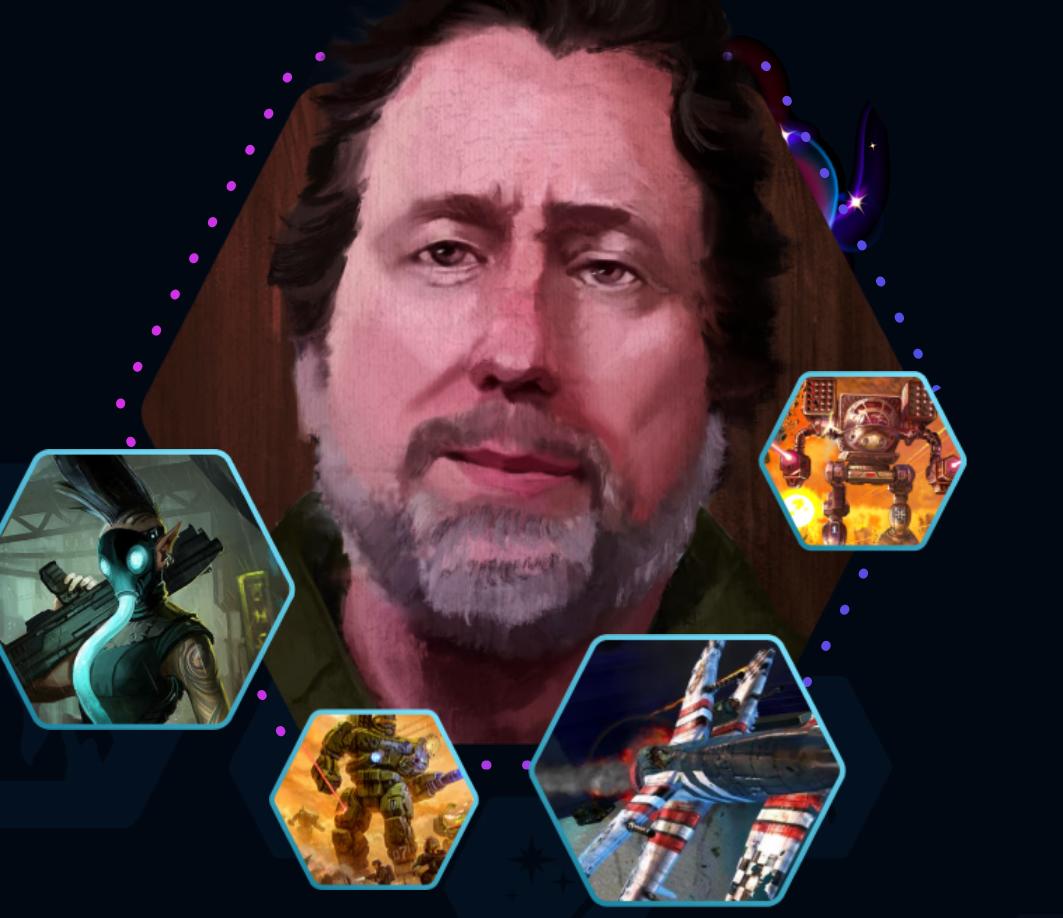Jordan Weisman loves games. He got his start doing roleplaying and strategy games, then moved over into every kind of digital diversion, including ones that blur the boundaries between the physical world and the frontiers of new technology. In his career he’s started half a dozen companies, helped Microsoft launch their gaming division, served as creative director for Disney Imagineering, developed genre classics like BattleTech and Shadowrun, and coined the term “transmedia” to apply to multi-platform storytelling experiences like the legendary “Why So Serious” alternate reality game he designed around the 2008 Dark Knight movie.
These days his passion is no-code game development, intended to open the possibilities of game-based interactive storytelling to people without the knowledge or patience to write code. His latest company, Endless Adventures, has just launched a new crowdfunding campaign to develop the first title authored using the “Adventure Forge” tool the company has created.
Game developer and entrepreneur Jordan Weisman
“As a game designer, your focus is on the logic of what you want your game to do,” Weisman explained in a video interview in mid-October. “We’ve designed a ‘mad-libs’ system with contextual drop-down menus that capture your intent and let you build the game without being focused on the syntax of a coding language.”
Weisman said he and his team began building the technology several years before the emergence of generative AI, a technology he considers both intriguing and frightening. “As a developer, I look at GenAI and think ‘that’s so cool,’ but as a person who runs a bunch of businesses and sees how people get paid, I’m like, ‘what’s going to happen if you take away all those jobs?’ or even some of those jobs?”
Consequently, Weisman says he sees a limited role for AI in the platform, using it as a tool to automate certain inessential aspects of the development process and assist human creators, but not as something that surfaces in the gameplay itself. Weisman says he believes the tools should be “fundamentally about empowering human developers and storytellers, because entertainment should be about human connection.”
Last week, after five years away from the industry spotlight, Weisman launched a crowdfunding campaign for a game intended to be a proof of concept for Adventure Forge, a pirate-themed videogame called “Sea of Legends,” based on a tabletop game developed by his son Zach.
Example of the Sea of Legends game, in development from Adventure Forge Games
Crowdfunding is nothing new for Weisman. In 2014, his campaign to create a videogame of his fan-favorite cyberpunk title Shadowrun set a then-record on Kickstarter, bringing in over $1.2 million. Subsequent campaigns for products from his company Harebrained Schemes brought in nearly $10 million.
“Crowdfunding is attractive for small studios because you get to make your case directly to players, not executives or investors trying to anticipate what players want,” he said. But he acknowledges the landscape has changed, as platforms like Kickstarter have evolved from communities where artists could raise money to realize their vision, to more sophisticated preorder and marketing mechanisms for established brands. “It’s gone from funding creation to funding production and manufacture. The expectations are different.”
Despite the changes to the ecosystem since the last time Weisman and his companies were active in the space, he says that going the crowdfunding route helps mitigate some of the financial hurdles facing the game industry in the years since the end of the pandemic-driven surge.
In Weisman’s view, the gaming business, though cyclical in nature, is at a turning point because of a “perfect storm” of adverse conditions. “We got addicted to free money,” he said, referring to historically low interest rates that lowered the risk of overinvestment, plus an influx of venture capital seeking higher returns. That led to excessive valuations, unsustainable salaries, too many companies chasing scarce talent and revenue forecasts based on artificially-inflated market conditions.
“All those things left a huge hangover in our industry, despite actual revenue growth if you even out the spikes of the pandemic,” he said. Weisman also said the shift to remote collaboration necessitated by pandemic conditions fundamentally changed the dynamics of the industry. “It no longer matters if someone is three cubicles away from me or three thousand miles away, anywhere in my time zone,” he said.
Despite all these uncertainties, Weisman says he is still energized by the storytelling potential of great games and their ability to bring players into worlds of imagination. He continues his exploration of augmented and mixed reality, hopeful that hardware innovation will eventually produce high quality, lightweight, consumer-grade products that can serve as platforms for new immersive worlds.
In the near term, he’s optimistic that the Adventure Forge technology will catch on, not just as the framework for the games he and his company are developing, but as the enabler of a new surge of creativity. “I appreciate all the support the fans have shown for this game, but I’m really hope they crack open Adventure Forge and start making their own games and telling their own stories.”
Adventure Forge is a technology platform for code-free game development and the basis for “Sea of … [+]
Source: bing.com



